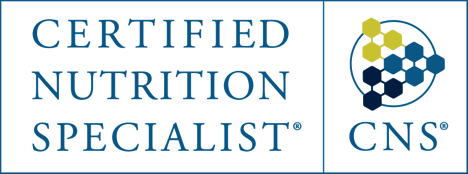Roni Enten Vissoker PhD
CNS, LDN
Individualized Biomedical Nutritionist


Home » Treating autism – The importance of person-centered care
Treating autism spectrum disorder (ASD) involves a comprehensive approach that addresses a range of symptoms and challenges. While there is no cure for ASD, we now know that autism is treatable and there are many interventions and therapies available to help individuals with ASD lead healthy and fulfilling lives.
No matter what the treatment or therapy, all autism treatment should be based upon the concept of person-centered (PC) care, which focuses on tailoring interventions to meet the unique needs, abilities, and preferences of each individual. Person-centered care is grounded in the belief that individuals with ASD are experts in their own experiences and should be active participants in their treatment journey. This approach recognizes that one-size-fits-all solutions are not effective for ASD and that interventions should be tailored to each person’s strengths, challenges, and goals. Here are some key aspects of person-centered care in autism treatment:
Individualized Assessment: Person-centered care begins with a thorough assessment of the individual’s strengths, challenges, preferences, and goals. This assessment may include input from the individual, their family, and a multidisciplinary team of professionals, such as psychologists, speech therapists, occupational therapists, nutritionists and educators.
In the framework of autism nutrition and biomedical nutrition for autism, a complete intake consultation, dietary analysis and specialized laboratory testing can help to uncover the individual’s personal nutritional needs which can set the foundation for the creation of an individualized nutritional protocol. For example, some people carry genetic variations that affect the way that they metabolize a certain nutrient, which can directly affect their health, mood and function and uncovering these unique differences has the potential to support specific challenging symptoms, overall health and function.
Collaborative Goal Setting: Once the individual’s needs and goals are identified, a collaborative treatment plan is developed. This plan outlines specific interventions, therapies, and supports that are tailored to the individual’s unique needs and preferences. The individual and their family are active participants in setting and revising these goals, ensuring that the treatment plan is aligned with their priorities. One of the core tenets of individualized biomedical nutrition or autism nutrition is to work with families to suggest and support dietary and nutritional changes for autism that are realistic for their lifestyle and preferences.
Evidence-Based Interventions: Person-centered care in autism treatment involves using evidence-based interventions that are proven to be effective. These interventions may include behavioral therapies, speech and language therapy, occupational therapy, social skills training, and educational interventions. The key is to select interventions that are most appropriate for the individual’s specific needs and goals. Although many are unaware, there is a wide range of research papers that support the use of individualized nutrition therapies in the framework of autism nutrition and these are available for review here.
Family Involvement: Person-centered care also recognizes the importance of involving the individual’s family in the treatment process. Families play a crucial role in supporting the individual’s progress and generalizing skills learned in therapy to everyday life. Parental education and involvement is also central to helping food selective children improve their nutritional intake and to implementing nutritional changes!
Ongoing Monitoring and Adjustment: Person-centered care such as individualized nutrition is dynamic and responsive, with ongoing monitoring of the individual’s progress and needs. In this approach as in all person centered care approaches, treatment plans are regularly reviewed and adjusted based on the individual’s progress, changes in their needs, and evolving goals. This ensures that the treatment plan remains relevant and effective over time.
Respect for Autonomy and Choice: Person-centered care respects the autonomy and choices of the individual with ASD. This includes respecting their right to make decisions about their own treatment and involving them in decisions that affect their care. It also means considering the individual’s preferences, interests, and values when designing and implementing interventions.
In summary, person-centered care such as IBN is a fundamental aspect of autism treatment that emphasizes the importance of tailoring interventions to meet the unique needs, abilities, and preferences of each individual and this is also the focus of individualized biomedical nutrition. By focusing on the individual’s strengths, challenges, and goals, person-centered care can help individuals with ASD achieve their full potential and lead fulfilling lives.
Interested in an individualized nutrition care plan for your child? Contact me now to book a call to learn more and to get started.
Comments Off on Treating autism – The importance of person-centered care